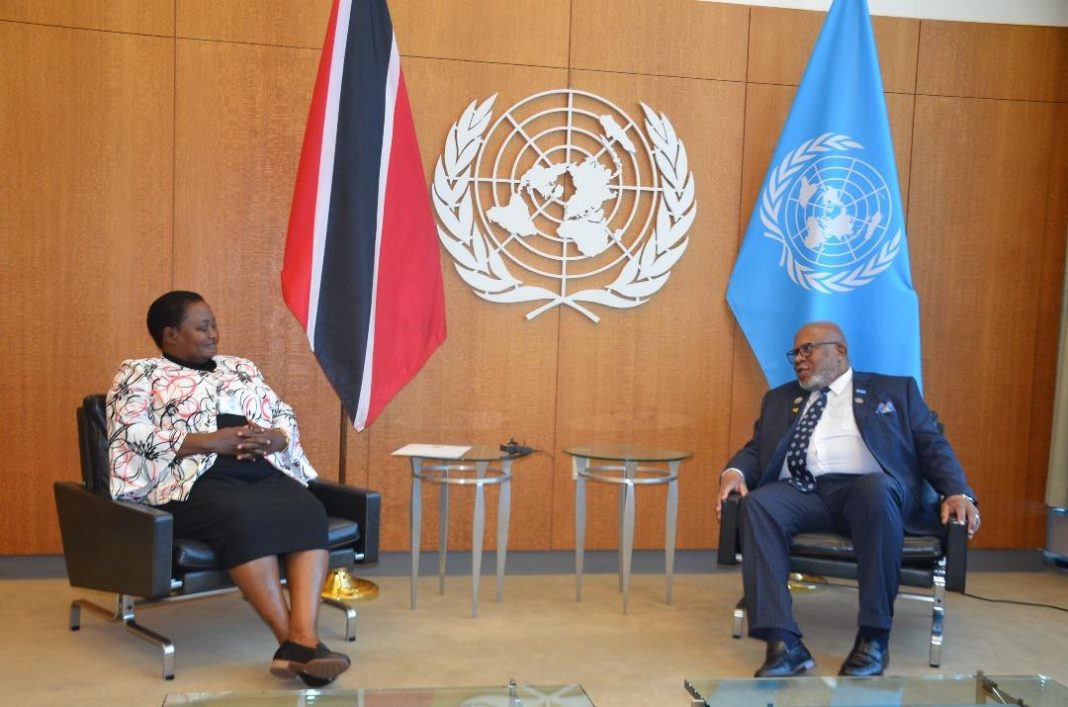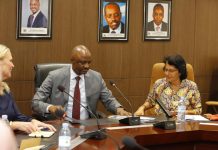President Yoweri Museveni has informed world leaders the imperative of eliminating the exploitative practice of commercial lending to attain global prosperity.
“To achieve global affluence, we must abolish the exploitative nature of commercial lending. Commercial loans should be reserved for non-essential items like luxury goods, while concessional borrowing, with low interest rates and extended repayment periods, should be prioritized for infrastructure, manufacturing, and vital services such as tourism. This shift will propel much of the world towards prosperity,” remarked the President.
Museveni urged developed nations to annul exploitative debts, which hinder socio-economic advancement.
“The current exploitative debts must be forgiven, as they act as shackles hindering comprehensive socio-economic transformation,” he emphasized.
These sentiments were conveyed in the President’s address at the ongoing United Nations General Assembly high-level thematic debate on debt sustainability and socio-economic equality for all at the UN headquarters in New York.
Uganda’s Prime Minister Rt. Hon. Nabbanja Robinah presented the President’s message at the forum, accompanied by Uganda’s Permanent Representative to the United Nations Ambassador Adonia Ayebare.
Museveni criticized the presence of pseudo-economists and parasites advocating for the narrow-based growth of the global economy.
“In Uganda, we continuously strive for inclusive socio-economic transformation, involving all stakeholders of the economy. When the global economy grows, there will be increased productivity and services, leading to widespread prosperity,” he affirmed.
Furthermore, as the discussion on debt unfolds, Museveni underscored the importance of reflecting on the disparity in global affluence by 1970, highlighting China’s significant rise from the eighth position in development.
“The scenario of a small aristocracy of wealthy societies, comprising only 30% of the global population, was erroneously deemed normal and permanent. This distortion necessitates rational reorganization for a more equitable world,” observed Museveni.
He cited the example of Uganda’s endeavor to attract investors for its high-quality iron ore in 1986, which was thwarted by individuals claiming an oversupply of steel globally.
“When China, with its rationalized policies fostering wealth creation, emerged as a major economic player, the pseudo-economists’ surplus steel became scarce, causing steel prices to skyrocket,” elaborated the President.
Museveni emphasized that socio-economic transformations in countries like India and China increased demand for commodities such as cement and copper.
In a parallel development, Uganda’s Permanent Representative to the United Nations in New York Ambassador Adonia Ayebare reiterated Uganda’s commitment as the Chair of the G77+China and the Non-Aligned Movement (NAM) to collaborate with the United Nations in achieving Sustainable Development Goals (SDGs).
Ayebare emphasized the G77+China’s call for immediate action on debt sustainability and advocated for financial architecture reforms.
During bilateral discussions, the Prime Minister engaged with the President of the United Nations General Assembly H.E. Dennis Francis to address mutual concerns.
Nabbanja sought the UNGA President’s support in addressing exploitative debts afflicting developing nations and assured Uganda’s ongoing cooperation.
H.E. Dennis Francis expressed gratitude for Uganda’s active involvement in organizing the week-long sustainability debate and pledged continued support.
Earlier, the Prime Minister visited the offices of the G77+China at the United Nations Complex, reaffirming Uganda’s commitment to collaboration.
Minister Balaam Barugahara emphasized the need for job creation and industrial development in countries producing raw materials for socio-economic transformation.
Aturo Lozaro of G77+China Secretariat affirmed readiness to cooperate with Uganda, the chair of G77+China.
Achieving debt sustainability and socio-economic equity requires coordinated multilateral efforts to reform the international financial architecture, particularly International Financial Institutions, to better support sustainable development worldwide.
The week-long high-level thematic debate offers an opportunity to address challenges in debt sustainability and advocate for national and international action to achieve socio-economic equality for all.























